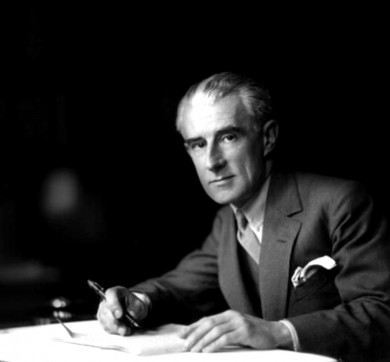Frost Chamber Players display fine teamwork at Festival Miami

Mauriuce Ravel’s “Introduction and Allegro” and “Chansons madecasses” were performed Tuesday night by the Frost Chamber Players at Festival Miami.
As part of the Festival Miami concert series, members of the University of Miami faculty assembled Tuesday at Gusman Concert Hall for a Frost Chamber Players concert.
The well-programmed evening began with Reinecke’s Trio for Oboe, Horn, and Piano Op. 188 The unusual instrumentation of this trio dictates that the instruments must act more as individual voices rather than blending together into a cohesive sound.
The melodic lines of Robert Weiner’s oboe and Richard Todd’s horn in both the first movement and in the sweet theme of the third movement were fitfully interrupted by the inconsistency of Todd’s horn tone. The playful motif in the second movement scherzo was given proper treatment by the musicians and proved a delight. While Weiner and Todd seemed to be engaged in a conversational approach, pianist Tian Ying was less assertive in passages where he was given the melody and fell into a supportive role.
Ravel’s Chansons madécasses, or “Songs of Madagascar” is an ambitious and exciting chamber work set to three poems by Évariste de Parny. Ravel admitted he was heavily influenced by Schoenberg, specifically Pierrot Lunaire, when writing this song cycle; it can thereby be expected that the piece would be more unconventional when compared to the rest of his body of work.
Robynne Redmond confidently tackled the solo vocal lines with a rich and expressive mezzo tone. The first and last poems in the work are heavily erotic in content and manage to remain seductive in tone despite a somewhat unfocused feeling. Trudy Kane (flute), Ross Harbaugh (cello), and Paul Posnak (piano), provided the backing accompaniment and managed to attain a fine balance. The second poem in the set, “Aoua! Méfiez-vous des blancs” (“Auoa! Beware the white man”) is introduced with a primal scream that is later repeated. Every member of the ensemble effectively worked to achieve an tone of menace and foreboding.
In a complete contrast to his previous composition, Ravel’s Introduction et Allegro is stunning and lush. Ravel was commissioned to write his Introduction et Allegro by the Érard Company to promote the capabilities of their double-action pedal harp; because it was commissioned to show off the harp, the piece has taken a form often looked at as a mini-concerto for harp.
Harpist Deborah Fleisher aptly took the reins and conveyed the dream-like quality of Ravel’s melodies. Kane and Harbaugh took the stage once more, joined by Margaret Donaghue (clarinet), Glenn Basham (violin), Scott Flavin (violin), and Pamela McConnell (viola). The strings, flute, and clarinet mingled seamlessly to create an elegant and highly expressive ensemble.
The evening closed with a charming performance of Beethoven’s Septet Op. 20. Basham, McConnell, Harbaugh, Donaghue, Todd, Brian Powell (bass) and Gabriel Beavers (bassoon) readily tackled the work. From the opening chord it was clear that this ensemble’s interpretation would radiate pure enjoyment. The tempos were brisk and the players’ lively exuberance drove the work to a crowd-pleasing finale.
Posted in Performances
Leave a Comment
Wed Oct 16, 2013
at 12:27 pm
No Comments